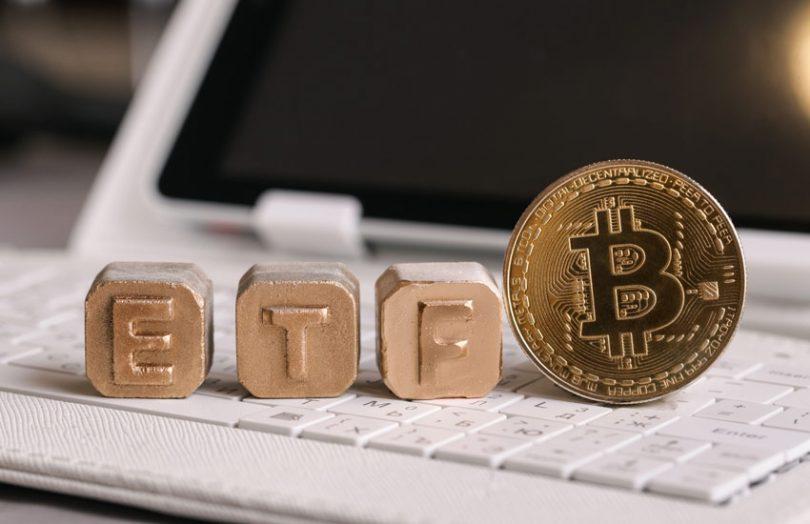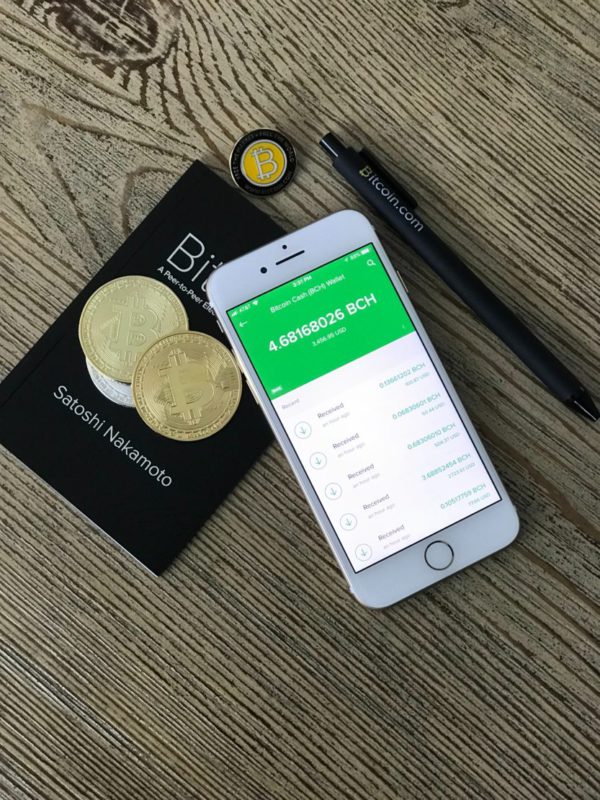How To Buy Bitcoin ETFs And Top 10 Reasons To Why They Are Important
Bitcoin ETFs (Exchange-Traded Funds) are investment vehicles that track the price of Bitcoin (BTC) and enable investors to gain exposure to the cryptocurrency market through traditional brokerage accounts. Unlike purchasing Bitcoin directly on cryptocurrency exchanges, where investors hold the underlying asset in a digital wallet, Bitcoin ETFs allow investors to buy and sell shares representing ownership of Bitcoin within their brokerage accounts. So let’s delve into the big question “How to buy Bitcoin ETFs?”
The structure of Bitcoin ETFs typically involves a fund manager or sponsor purchasing and holding Bitcoin on behalf of the ETF, with each share of the ETF representing a fraction of the total Bitcoin holdings. These shares are then traded on regulated stock exchanges, allowing investors to buy and sell them like any other stock or ETF during market hours.
Bitcoin ETFs offer several potential advantages for investors:
- Accessibility: Bitcoin ETFs provide a convenient way for investors to gain exposure to Bitcoin without the need to set up and manage a digital wallet or navigate cryptocurrency exchanges. This accessibility opens up the cryptocurrency market to a broader range of investors, including those who may be hesitant to invest directly in digital assets.
- Regulation and Oversight: Bitcoin ETFs operate within the regulatory framework of traditional financial markets, providing investors with a level of oversight and investor protection that may be lacking in the unregulated cryptocurrency ecosystem. ETFs are subject to regulatory requirements and disclosures, providing transparency and accountability to investors.
- Liquidity: Bitcoin ETFs trade on regulated stock exchanges, offering liquidity and price discovery similar to other publicly traded securities. This liquidity allows investors to buy and sell shares of the ETF with ease, potentially mitigating the liquidity challenges associated with trading Bitcoin directly on cryptocurrency exchanges.
- Diversification: Some Bitcoin ETFs may offer exposure to a diversified portfolio of digital assets beyond just Bitcoin, providing investors with broader exposure to the cryptocurrency market while still benefiting from the convenience and accessibility of an ETF structure.
However, it’s important to note that Bitcoin ETFs also have limitations and considerations. For example, investors do not directly own the underlying Bitcoin held by the ETF, and the value of ETF shares may not perfectly track the price of Bitcoin due to factors such as management fees, trading premiums or discounts, and tracking errors. Additionally, regulatory approval and listing requirements may vary by jurisdiction, leading to differences in the availability and structure of Bitcoin ETFs across different markets.
Also, read- Top 5 Reasons The Approval Of Bitcoin ETFs By The SEC Marked A Crucial Milestone
Importance of Bitcoin’s ETFs

Bitcoin ETFs (Exchange-Traded Funds) offer several important benefits for investors and the broader financial market:
- Accessibility: Bitcoin ETFs provide an accessible and convenient way for investors to gain exposure to Bitcoin without the technical complexities associated with buying, storing, and managing the cryptocurrency directly.
- Regulated Investment Vehicle: Bitcoin ETFs operate within the regulatory framework of traditional financial markets, providing investors with the security and oversight offered by regulatory bodies, such as the Securities and Exchange Commission (SEC) in the United States.
- Liquidity: ETFs are traded on major stock exchanges, which enhances liquidity and allows investors to buy and sell shares throughout the trading day at market prices, providing flexibility and ease of trading.
- Diversification: Bitcoin ETFs enable investors to diversify their portfolios by adding exposure to Bitcoin alongside traditional assets like stocks, bonds, and commodities, potentially reducing overall portfolio risk.
- Risk Management: ETFs offer risk management features such as stop-loss orders and options trading, allowing investors to implement risk mitigation strategies to protect their investments.
- Transparency: Bitcoin ETFs disclose their holdings and performance data regularly, providing investors with transparency and visibility into the underlying assets and fund operations.
- Tax Efficiency: ETFs are generally tax-efficient investment vehicles compared to mutual funds, as they typically have lower capital gains distributions due to in-kind redemptions and fewer taxable events.
- Market Integration: Bitcoin ETFs integrate Bitcoin into traditional financial markets, bridging the gap between the cryptocurrency ecosystem and mainstream investment avenues, which can contribute to increased adoption and legitimacy of Bitcoin as an asset class.
- Institutional Participation: Bitcoin ETFs provide institutional investors, such as pension funds, hedge funds, and asset managers, with a regulated and familiar vehicle to allocate capital to Bitcoin, potentially driving increased institutional participation in the cryptocurrency market.
- Price Discovery: The trading activity of Bitcoin ETFs can contribute to price discovery and price efficiency in the Bitcoin market, as ETF prices reflect investor sentiment and demand for exposure to Bitcoin, providing valuable insights for market participants.
Overall, Bitcoin ETFs play a significant role in democratizing access to Bitcoin, integrating cryptocurrencies into traditional financial markets, and providing investors with regulated, transparent, and efficient investment opportunities in the digital asset space.
#Microstrategy $MSTR is the BEST #Bitcoin ETF on the planet during a bull market!!!
— Jesse (@Micro2Macr0) March 11, 2024
– No fees
– Buys more $BTC when the stock becomes heavily over valued. Which makes the stock more valuable and inline with valuation. Then people buy more stock, and Micro does it again.
It’s a… pic.twitter.com/fenfoJVWQL
Entering the Arena: How to Buy Bitcoin ETFs

Bitcoin ETFs (Exchange-Traded Funds) offer a regulated and potentially less volatile way to gain exposure to Bitcoin’s price movements. Unlike directly buying Bitcoin on a cryptocurrency exchange, ETFs trade on traditional stock exchanges, similar to stocks. This section will guide you through the process of acquiring Bitcoin ETFs, but remember, investing always carries inherent risks, so conducting thorough research is crucial.
Prerequisites for Takeoff:
Before you embark on your Bitcoin ETF journey, ensure you have the following in place:
- A Brokerage Account: You’ll need an account with a broker that offers Bitcoin ETFs. Popular options include Fidelity, Charles Schwab, and TD Ameritrade. Research different brokers to compare fees, investment minimums, account features, and the specific Bitcoin ETFs they offer.
- Funding: Just like buying stocks, you’ll need funds in your brokerage account to purchase Bitcoin ETFs. You can typically transfer money from your bank account electronically.
Launch Sequence: The Buying Process:
- Log in to your Brokerage Account: Access your online brokerage account through their website or mobile app.
- Research and Choose Your Bitcoin ETF: Many Bitcoin ETFs are now available, each with slightly different features and expense ratios. Look for information on the underlying assets (physical Bitcoin vs. Bitcoin futures contracts), fees, and track record.
- Navigate to the Order Entry Section: Locate the section where you can place buy orders for securities. This might be called “Trade” or “Order Entry” depending on your broker’s platform.
- Input the ETF Ticker Symbol: Each Bitcoin ETF has a unique ticker symbol that identifies it on the exchange. Find the ticker symbol for your chosen ETF (e.g., BITO for ProShares Bitcoin Strategy ETF). Enter the symbol in the designated field.
- Specify Order Type and Quantity: There are various order types, but for a basic purchase, you’ll likely choose a “market order” which instructs the broker to buy at the current market price. Alternatively, a “limit order” allows you to set a specific price you’re willing to pay. Determine the number of ETF shares you want to buy (be mindful of your budget and investment goals).
- Review and Submit the Order: Double-check all the details of your order, including the ticker symbol, order type, quantity, and estimated price (for market orders). Once satisfied, submit the order to execute the purchase.
Confirmation and Beyond:
- Order Confirmation: Your broker will typically send you a confirmation once your order is filled. This will show the price paid per share and the total amount invested.
- Hold or Sell: Bitcoin ETFs can be held for the long term or sold when you believe it’s the right time. The decision depends on your investment strategy and risk tolerance.
Additional Considerations:
- Fees: Bitcoin ETFs typically come with expense ratios, annual fees charged by the fund to cover management and operational costs. Be mindful of these fees as they can eat into your returns.
- Volatility: While generally less volatile than directly owning Bitcoin, Bitcoin ETFs are still subject to market fluctuations. Be prepared for price swings and ensure your investment aligns with your risk tolerance.
- Not the Same as Bitcoin: Owning Bitcoin ETFs doesn’t grant you direct ownership of Bitcoin itself. You’re essentially investing in a fund that tracks Bitcoin’s price.
By following these steps and considering the additional factors, you can make an informed decision about whether Bitcoin ETFs are a suitable addition to your investment portfolio. Remember, investing involves risk, so conducting your own research and consulting with a financial advisor is recommended before making any investment decisions.
Conclusion
In conclusion, Bitcoin ETFs represent a significant development in the evolution of both the cryptocurrency market and traditional finance. These investment vehicles offer a range of important benefits for investors, including accessibility, liquidity, diversification, and risk management, while operating within the regulatory framework of traditional financial markets. By providing a regulated and transparent avenue for investors to gain exposure to Bitcoin, ETFs bridge the gap between the cryptocurrency ecosystem and mainstream investment channels, potentially driving increased adoption and legitimacy of Bitcoin as an asset class.
Moreover, Bitcoin ETFs facilitate institutional participation in the cryptocurrency market, attracting capital from pension funds, hedge funds, and asset managers, which can contribute to increased liquidity, price discovery, and market efficiency. Additionally, the integration of Bitcoin into traditional financial markets through ETFs enhances the visibility and understanding of cryptocurrencies among investors and regulators, paving the way for broader acceptance and adoption of digital assets.
However, it’s essential to recognize that Bitcoin also come with risks and challenges, including regulatory scrutiny, market volatility, and potential liquidity issues. Investors should carefully consider these factors and conduct thorough due diligence before investing in Bitcoin ETFs.
Overall, Bitcoin ETFs play a pivotal role in democratizing access to Bitcoin and providing investors with regulated, transparent, and efficient investment opportunities in the digital asset space. As the cryptocurrency market continues to evolve and mature, Bitcoin ETFs are likely to play an increasingly important role in shaping the future of finance and driving continued innovation in both traditional and digital asset markets.
Stay informed with daily updates from Blockchain Magazine on Google News. Click here to follow us and mark as favorite: [Blockchain Magazine on Google News].
Get Blockchain Insights In Inbox
Stay ahead of the curve with expert analysis and market updates.
latest from tech
Disclaimer: Any post shared by a third-party agency are sponsored and Blockchain Magazine has no views on any such posts. The views and opinions expressed in this post are those of the clients and do not necessarily reflect the official policy or position of Blockchain Magazine. The information provided in this post is for informational purposes only and should not be considered as financial, investment, or professional advice. Blockchain Magazine does not endorse or promote any specific products, services, or companies mentioned in this posts. Readers are encouraged to conduct their own research and consult with a qualified professional before making any financial decisions. The featured image used is just a creative depiction of the title and it does not intend to hurt sentiments of any person or institution. If it hurts anyone sentiments, please do not hesitate to reach out to Blockchain Magazine.

 Bitcoin
Bitcoin  Ethereum
Ethereum  XRP
XRP  Tether
Tether  Solana
Solana  Dogecoin
Dogecoin  USDC
USDC  Cardano
Cardano  Lido Staked Ether
Lido Staked Ether  TRON
TRON  Chainlink
Chainlink  Avalanche
Avalanche  Sui
Sui  Wrapped stETH
Wrapped stETH  Wrapped Bitcoin
Wrapped Bitcoin  Toncoin
Toncoin  Stellar
Stellar  Hedera
Hedera  Shiba Inu
Shiba Inu  Polkadot
Polkadot  WETH
WETH  LEO Token
LEO Token  Litecoin
Litecoin  Bitcoin Cash
Bitcoin Cash  Hyperliquid
Hyperliquid  Bitget Token
Bitget Token  Uniswap
Uniswap  Official Trump
Official Trump  USDS
USDS  Wrapped eETH
Wrapped eETH  Pepe
Pepe  NEAR Protocol
NEAR Protocol  Ethena USDe
Ethena USDe  Aave
Aave  Aptos
Aptos  Internet Computer
Internet Computer  Ondo
Ondo  WhiteBIT Coin
WhiteBIT Coin  Ethereum Classic
Ethereum Classic  Monero
Monero  Mantle
Mantle  Cronos
Cronos  POL (ex-MATIC)
POL (ex-MATIC)  Render
Render  Dai
Dai  Algorand
Algorand  OKB
OKB  Artificial Superintelligence Alliance
Artificial Superintelligence Alliance 




